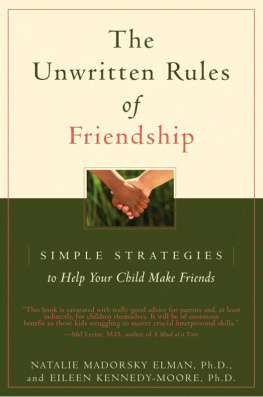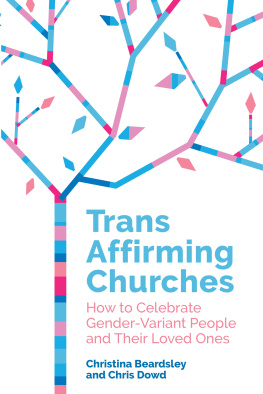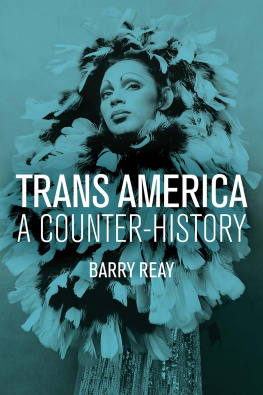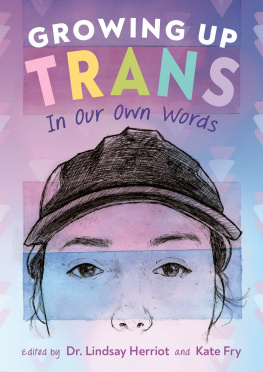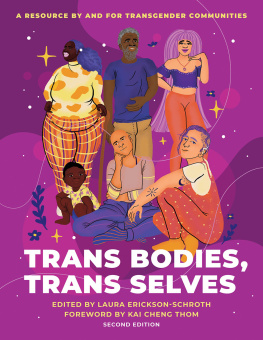Zoë Playdon - And the Unwritten History of the Trans Experience
Here you can read online Zoë Playdon - And the Unwritten History of the Trans Experience full text of the book (entire story) in english for free. Download pdf and epub, get meaning, cover and reviews about this ebook. year: 2021, publisher: Scribner, genre: Home and family. Description of the work, (preface) as well as reviews are available. Best literature library LitArk.com created for fans of good reading and offers a wide selection of genres:
Romance novel
Science fiction
Adventure
Detective
Science
History
Home and family
Prose
Art
Politics
Computer
Non-fiction
Religion
Business
Children
Humor
Choose a favorite category and find really read worthwhile books. Enjoy immersion in the world of imagination, feel the emotions of the characters or learn something new for yourself, make an fascinating discovery.

- Book:And the Unwritten History of the Trans Experience
- Author:
- Publisher:Scribner
- Genre:
- Year:2021
- Rating:5 / 5
- Favourites:Add to favourites
- Your mark:
- 100
- 1
- 2
- 3
- 4
- 5
And the Unwritten History of the Trans Experience: summary, description and annotation
We offer to read an annotation, description, summary or preface (depends on what the author of the book "And the Unwritten History of the Trans Experience" wrote himself). If you haven't found the necessary information about the book — write in the comments, we will try to find it.
Zoë Playdon: author's other books
Who wrote And the Unwritten History of the Trans Experience? Find out the surname, the name of the author of the book and a list of all author's works by series.
And the Unwritten History of the Trans Experience — read online for free the complete book (whole text) full work
Below is the text of the book, divided by pages. System saving the place of the last page read, allows you to conveniently read the book "And the Unwritten History of the Trans Experience" online for free, without having to search again every time where you left off. Put a bookmark, and you can go to the page where you finished reading at any time.
Font size:
Interval:
Bookmark:
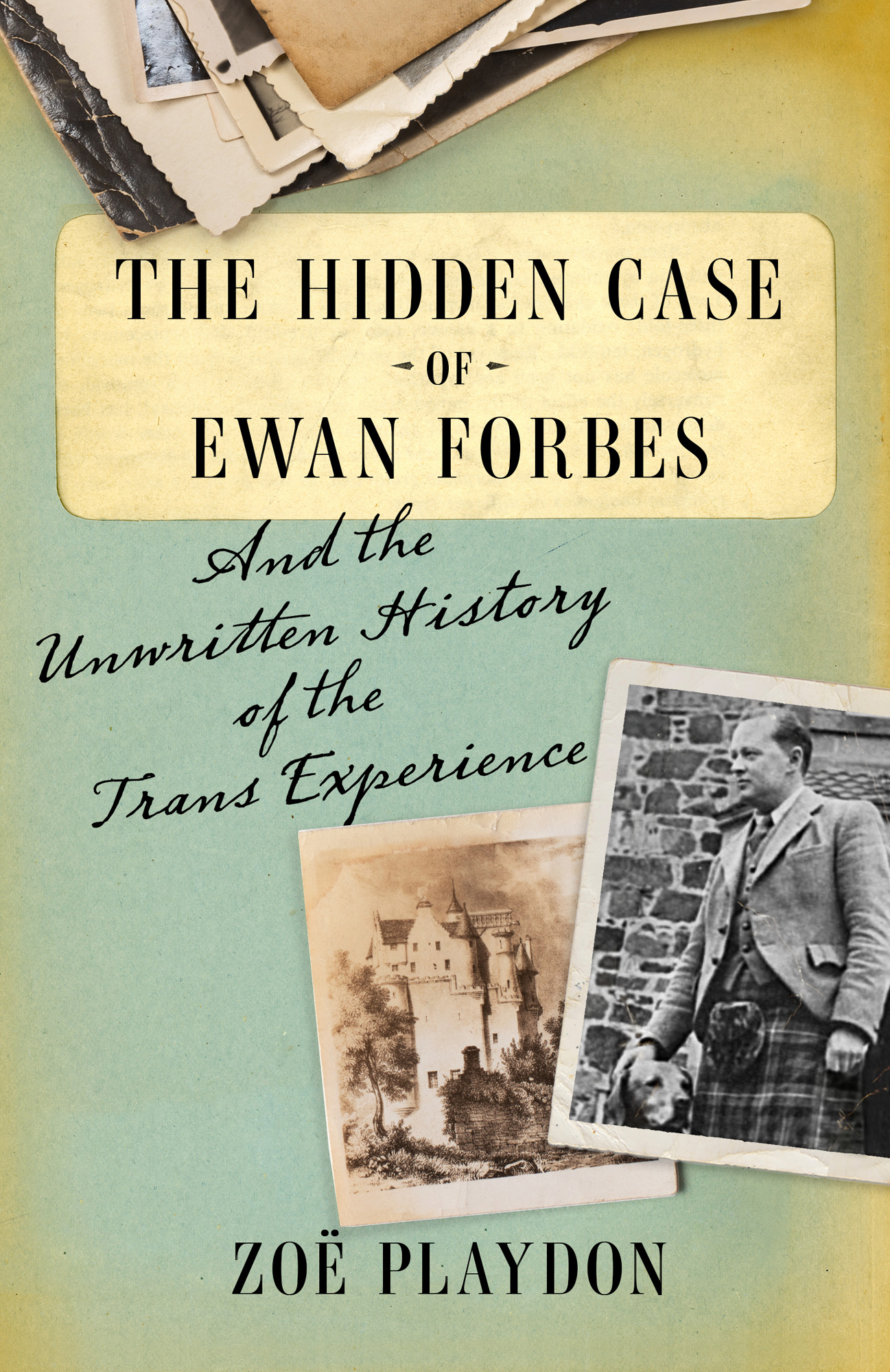
The Hidden Case of Ewan Forbes
And the Unwritten History of the Trans Experience
Zo Playdon
Thank you for downloading this Simon & Schuster ebook.
Get a FREE ebook when you join our mailing list. Plus, get updates on new releases, deals, recommended reads, and more from Simon & Schuster. Click below to sign up and see terms and conditions.
CLICK HERE TO SIGN UP
Already a subscriber? Provide your email again so we can register this ebook and send you more of what you like to read. You will continue to receive exclusive offers in your inbox.

To defy Power, which seems omnipotent;
To love, and bear; to hope till Hope creates
From its own wreck the thing it contemplates;
Percy Bysshe Shelley, Prometheus Unbound
I first heard about the hidden case of Ewan Forbes on February 16, 1996. Id been with a group of lawyers working for trans equality, picking over a crushing defeat by the government in the High Court of Justice. We couldnt understand why we had lost. Wed found evidence that trans people had had the sex on their birth certificates corrected in the past without any problems, and we argued that they should be able to correct them now, as a matter of common sense and natural justice. Because the UK has no national identity card, the birth certificate is used as a proof of identity by employers, solicitors and administrators, and it is humiliating for trans people to have their private medical history paraded in front of strangers when their birth certificates are required for such purposes. There are also devastating legal consequences. When the right to have their birth certificates corrected evaporated in the late 1960s, trans people found that their basic civil liberties disappeared along with it. No one seemed to know exactly how that had happened: there had been no debate in Parliament and no new statutes or regulations. But suddenly, although trans people might live their lives like everyone else, they had no employment rights, could not marry or adopt, and if they couldnt pay their car-parking fines, they would be sent to the wrong sex prison, where trans womens rape was routine and yet not classed as rape.
It seemed impossible that an impartial judge could countenance the continuation of this injustice. Yet the High Court had found against us. I was a former chair of the Gay and Lesbian Association of Doctors and Dentists (GLADD), and Id been working alongside this team of lawyers as an expert in LGBTI human rights, drawing on my years of frontline experience, but neither my colleagues nor I had been able to make sense of our defeat. Then, as I got through the door at my home in Russell Square, London, the phone started ringing. It was one of the lawyers, the solicitor Madeleine Rees, and her news was electrifying.
Maddie had just had a call from Terrence Walton, solicitor in the famous April Ashley trans legal case from a quarter of a century earlier. Terrence, raw about our defeat, had complained to Madeleine that everyone blamed him and April for creating the legal precedent that meant trans people could not correct their birth certificates. But, he said, there had been another, earlier case. In 1969, before he and April went into court, they had been called into the judges chambers and shown this earlier case, and then informed that they could not refer to it. All traces of it had been removed from the public eye, they were told, and everyone who knew about it was sworn to secrecya pact that now included them. Terrence said this secret earlier case ended birth-certificate correction for UK trans people. After that, there was a blanket ban, because, as Terrence put it, There are some interests that it is more important to protect than the rights of individuals. From then on, trans people would have to live their lives as if they were the sex incorrectly assigned at their birth and suffer the devastating legal, social and psychological consequences.
The existence of this hidden case was astonishing news. The UKs system of common law works by what is known as the doctrine of precedent. This means that the judgment of a key legal case binds all subsequent similar cases, unless that judgment is changed by a more senior court. This system of case law creates the law of the land, so that publicly available law reports of important cases are fundamental to British democracy. Without them, British citizens have no way of knowing what laws they must follow. Terrences suggestion that an important case had been deliberately concealed was therefore deeply troubling.
I asked Madeleine to ring Terrence back and try to find out more information. Was there really some kind of a conspiracy, and not just a dreadful government error that had turned trans people into outcasts in their own country? But Terrence felt he had already said more than he should have and would give no more information.
I rang two colleagues: the trans campaigner Mark Rees and the academic lawyer Stephen Whittle, a leader of the trans lobbying group Press for Change. We mulled over Terrences news and decided that we had to confirm or refute it with proper academic rigor. For the majority of proceedings in UK law, the sex of plaintiffs and defendants is irrelevant. But it is crucially important where succession to a title is concerned. Given Terrences reference to important interests that overrode the rights of ordinary people, our best guess was that if such a case really did exist, it would have been about male-line primogeniture, the law that says certain aristocratic titles and lands can be inherited only by a man, never by a woman.
As a University of London professor, I had the best access to research libraries, and so we decided that I would lead the inquiry. The first step was to eliminate cases we knew about. On February 29, 1996, Stephen faxed me the Daily Telegraph obituary of a Scotsman, Sir Ewan Forbes of Craigievar. It described the ghastly mistake that meant that Ewan had been carelessly registered as a girl at birth in 1912; the correction of his birth certificate in 1952; his subsequent marriage; and a legal wrangle about him inheriting his primogeniture baronetcy, heard in the Scots Court of Session but ultimately decided by the Home Secretary James Callaghan. On the face of it, Ewan was intersex, born with a variation of external or internal genitalia, and not what was then called transsexual. It should have been easy to check and dismiss his case quickly.
And so began the mystery of the hidden case of Ewan Forbes, for wherever I looked, Ewan couldnt be found. I enlisted the help of both the Signet Library in Edinburgh and the Scottish Records Office, and they could find no trace in their indexes, files or catalogs. I received no reply to the letters of inquiry I wrote to the Home Office and to the Lord Advocate, the senior Scottish legal authority. This was inexplicable. However, I did obtain a copy of Ewans birth certificate from the General Register Office, showing his sex as male, and with small print that read, The above particulars incorporate any subsequent corrections or amendments to the original entry made with the authority of the Registrar General. It was very obviously a corrected birth certificate. The case was definitely worth pursuing.
Fortunately I was still in touch with my history teacher from school, who was then teaching at the University of Glasgow, and he turned up a short newspaper report on the case. With a date for Ewans case now in hand, I enlisted the help of Dr. Lynne Jones, MP, with whom I co-founded the Parliamentary Forum on Gender Identity in 1994. Lynne wrote formally to the Lord Advocate for information about Ewans case. The first reply was a simple denial: no decision of judgment was ever issued in those proceedings. Lynne wrote back, asking him to confirm that Ewan had the common male XY chromosome pattern. It took a year for a response to arrive.
Font size:
Interval:
Bookmark:
Similar books «And the Unwritten History of the Trans Experience»
Look at similar books to And the Unwritten History of the Trans Experience. We have selected literature similar in name and meaning in the hope of providing readers with more options to find new, interesting, not yet read works.
Discussion, reviews of the book And the Unwritten History of the Trans Experience and just readers' own opinions. Leave your comments, write what you think about the work, its meaning or the main characters. Specify what exactly you liked and what you didn't like, and why you think so.

